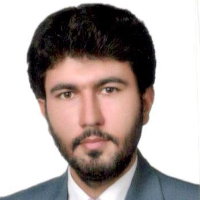Cognitive Resilience against Cognitive Warfare Targeting Iran: Components, Analysis, and Enhancement Strategies
Cognitive warfare is an emerging and complex domain within modern hybrid warfare that targets human perception and cognition through digital technologies, social media, and psychological operations. In recent years, the Islamic Republic of Iran has been increasingly subjected to such warfare, particularly during the 2022 unrest, when adversaries used targeted content, information saturation, and the illusion of majority to disrupt public cognitive coherence. This study seeks to answer the question: What are the effective strategies for enhancing cognitive resilience against cognitive warfare targeting Iran? The research employs a descriptive-analytical method using library resources, including domestic and international literature. The theoretical framework is based on a combination of cognitive-behavioral and indigenous socio-cultural approaches. Core components of cognitive resilience—such as media literacy, critical thinking, cognitive self-efficacy, mental flexibility, and stress management—form the basis of analysis. The findings reveal key challenges including insufficient media literacy education, lack of indigenous digital platforms, and weak institutionalization of narrative-based resistance (Jihad of Clarification). Accordingly, the study proposes strategic interventions such as enhancing cognitive education, promoting media sovereignty, institutionalizing proactive communication strategies, and establishing psychological support systems. If effectively implemented, these solutions could significantly strengthen Iran’s cognitive resilience against ongoing hybrid and cognitive threats.
-
A Framework for Enhancing Supply Chain Resilience through Disruptive Technologies
*, Amirreza Taghiloo, Mohammadreza Kholosi Aram
Emergency Management, -
Examining the Components and Indicators of the Smart Health-Oriented Product-Service System for Older Adults: A Review Study
Reza Hosnavi Atashgah*, Mohammadhossein Karimi Gavareshki, Mohammadreza Zahedi, , Ali Saei
Journal Of Gerontology,



